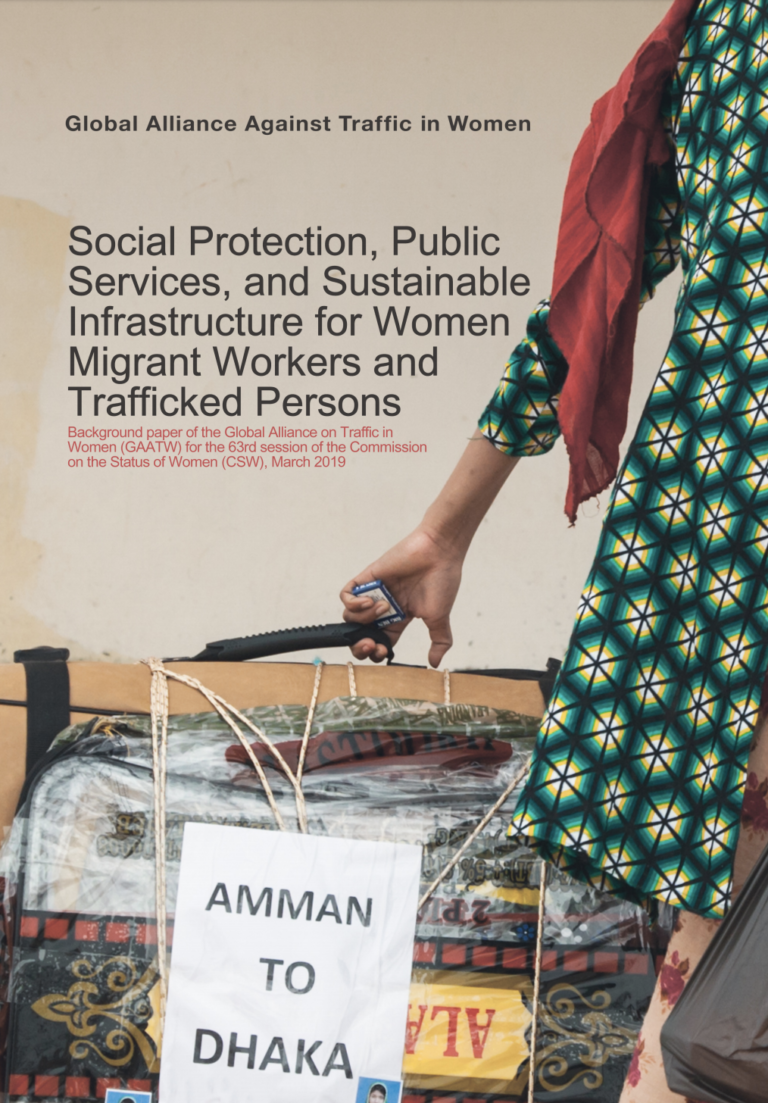Statement by the Global Alliance Against Traffic in Women on the occasion of International Women’s Day and ahead of the 63rd session of the UN Commission on the Status of Women.
The Global Alliance Against Traffic in Women calls on states to increase their investment in public services and social protections as a way to prevent human trafficking and protect the rights of migrant and trafficked women.
Migrant and trafficked women cite the absence of social protection systems as key in their decisions to migrate, regardless of the risk. This distress migration enables a supply of workers in precarious labour sectors, such as the domestic and garment work, which do not enjoy basic protections and increases the risks of trafficking and exploitation.
In destination countries, migrant workers, particularly women domestic and care workers, are often employed to fill gaps in social protection and services, where economic pressures and austerity measures have increased the unpaid care burden on women. In some countries, migrant workers have been recruited to meet longstanding recruitment problems, and make up large sectors of the workforce particularly in health and education.
In origin countries, women migrant workers play a crucial role in compensating for the underfunding or absence of public services. Their remittances are used to clothe, feed, house and educate their families.
Despite playing an outsized, and trans-boundary role in social protection, migrant women are also among the groups least able to access services and social protection. Access to public services and social protection systems are key to the fulfilment of the rights of migrant women, and to preventing trafficking but progress is threatened by budget cuts and austerity measures that have resulted in the privatisation of public services and increased user fees.
Austerity measures, including the underfunding of public services, have a detrimental impact on the ability to prevent, detect and respond to cases of trafficking. Given their role in victim identification, it is critical that public service providers, including labour inspection, law enforcement, immigration, health and social service providers have resources to identify and assist potential trafficked persons.

